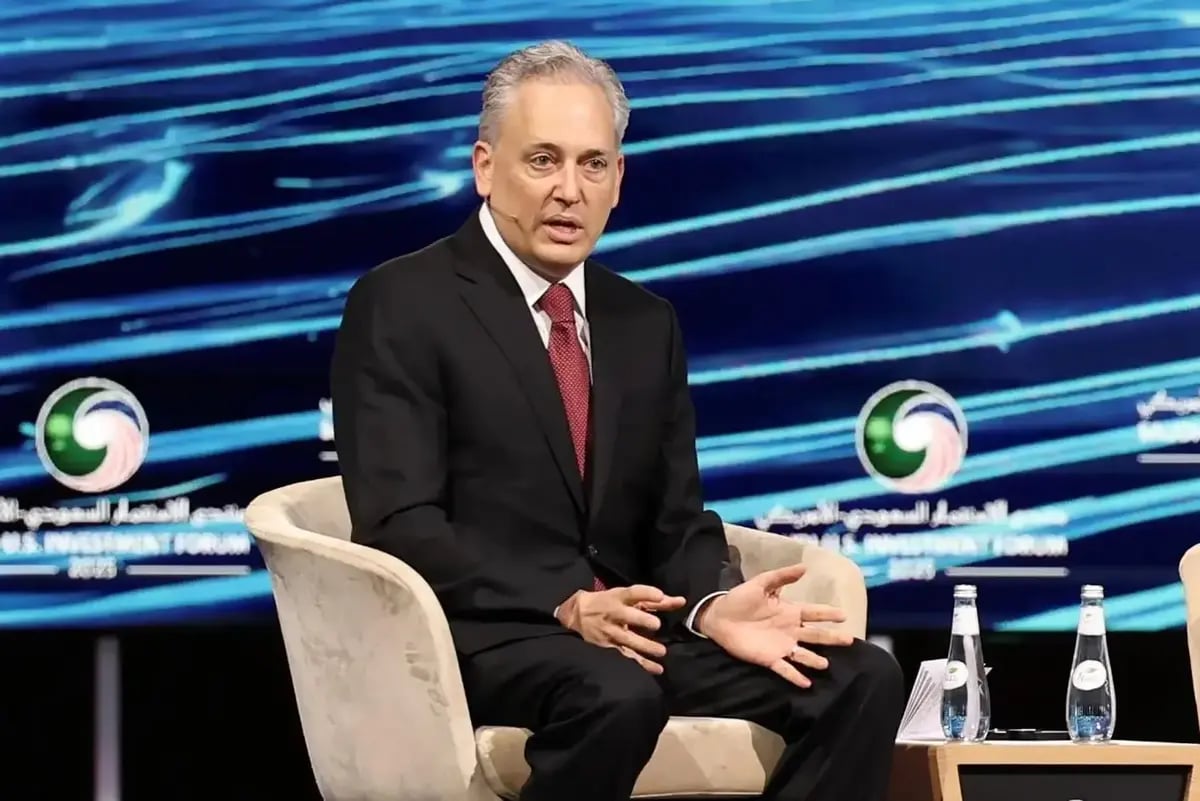The U.S. does not need to block the global spread of its AI chips and technology to manage national security risks, said White House special advisor for artificial intelligence and crypto, David Sacks, in Saudi Arabia on Tuesday. Sacks made his comments in Riyadh days after Washington announced plans to rescind and modify a Biden regulation that would limit global access to artificial-intelligence chips.
“The Trump administration has just announced that we will be rescinding what’s known as the Biden diffusion rule… it literally restricted the diffusion or proliferation of American technology all over the world,” Sacks told the Saudi-U.S. Investment Forum, which is being held during President Donald Trump’s tour of Gulf states.
He added: “Diffusion is not a risk with a friend like Saudi Arabia at all, but I think in general there was a great deal of misunderstanding about the diversion of GPUs,” Sacks said.
U.S. seeks stronger tech ties with Mideast allies
Sacks’s comments mark a shift from recent restrictions on data center technology transfers and reflect growing U.S. interest in deepening tech ties with Saudi Arabia and other Middle Eastern partners that are investing billions in AI infrastructure and aiming to become a hub for the emerging technology outside the United States.
“The original reason for this diffusion rule is that we have a policy of not wanting our advanced semiconductors to go to what are known as countries of concern,” said Sacks, adding that it was never intended to capture friends, allies and strategic partners.
The U.S. Framework for Artificial Intelligence Diffusion was launched in January, a week before Biden left office. The framework concluded a four-year effort by the Biden administration to limit China’s access to advanced chips and maintain U.S. leadership in AI.

Collaboration with Saudi Arabia crucial for advancing AI
The U.S.’s interest in growing its tech ties with the region was further evident when he praised Saudi Arabia’s efforts in cultivating an innovative technology ecosystem.
In a dialogue with Saudi Arabia’s Minister of Communications and Information Technology, Abdullah Alswaha, at the Saudi-U.S. Investment Forum, Sacks emphasized that collaboration with Saudi Arabia is crucial for advancing AI and driving global innovation, highlighting the Kingdom’s growing role as a key U.S. partner in shaping the future of the digital age.
Sacks also commended Saudi Arabia’s significant progress in technology and entrepreneurship, sharing insights from his visit to the ‘Garage’ incubator, where he met with Saudi entrepreneurs developing advanced applications in AI, robotics and biocomputing. He noted that Saudi Arabia has emerged as a global player in AI, propelled by its investments in digital infrastructure and the adoption of cutting-edge technologies in critical sectors like healthcare.
He also highlighted Saudi Arabia’s use of AI in genomics and gene therapy, particularly in treating diseases such as sickle cell anemia, as a strong example of its ability to leverage technology for sustainable development and improved public health.
AI central to Saudi Arabia’s transformation
For his part, Alswaha stated that Saudi Arabia is confidently transitioning from a traditional economy to a digital-driven one, with innovation at its core. He stressed that AI is central to this transformation and plays a vital role in the strategic partnership with the United States.
He also underscored the Kingdom’s investments in digital training and capacity-building in collaboration with leading American companies like Google, Apple, and Amazon, resulting in more than 381,000 skilled Saudi digital professionals.
Concluding the session, Alswaha emphasized that the Saudi Arabia-U.S. partnership serves as a global model of cooperation in technology, AI, and the digital economy. He reaffirmed that, through Vision 2030, Saudi Arabia aims to become a global innovation hub and a leading destination for the development and export of AI solutions that benefit humanity.








